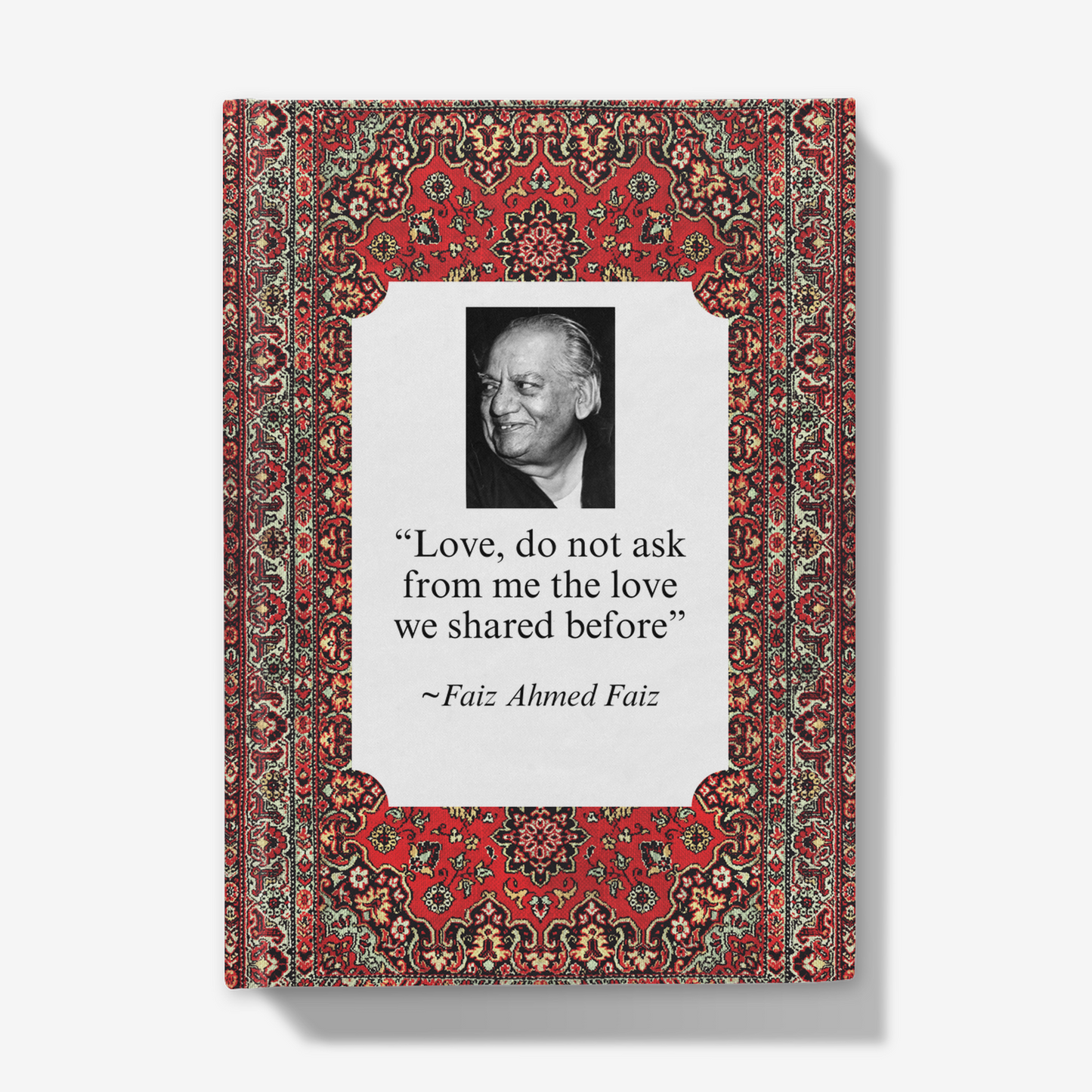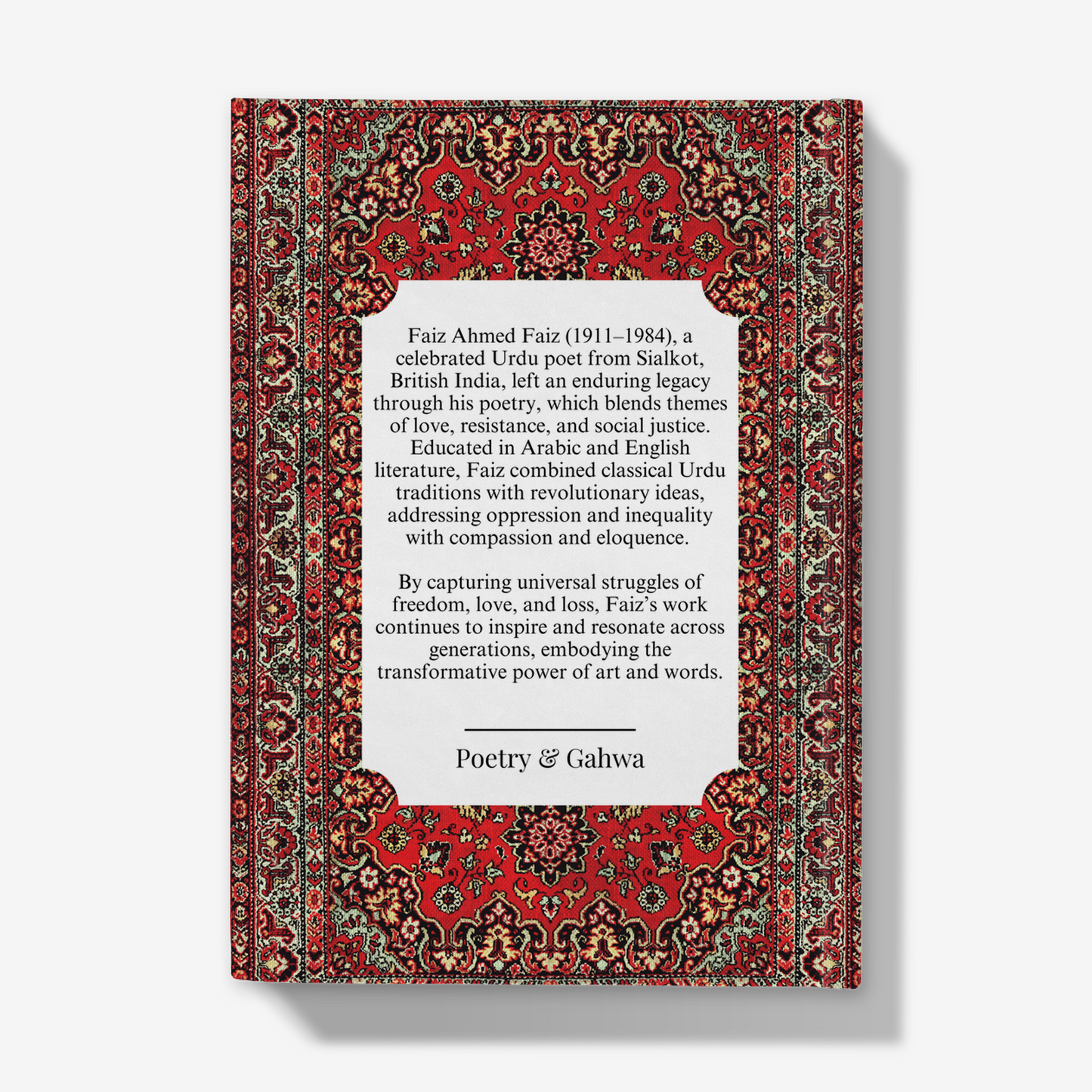Poetry & Gahwa
Faiz Ahmed Faiz: 'Love, do not ask from me the love we shared before' Journal
Faiz Ahmed Faiz: 'Love, do not ask from me the love we shared before' Journal
Couldn't load pickup availability
'Love, do not ask from me the love we shared before'
~Faiz Ahmed Faiz
Experience the art of writing with the Faiz Ahmed Faiz Journal, a timeless companion for those who cherish the elegance of thoughtful design.
Available in a convenient 5 x 7” format, this journal offers a robust 260gsm hardback cover with a chipboard construction and refined vinyl laminate finish, providing unmatched durability and sophistication.
Inside, 128 pages of premium 90gsm paper await your every word, idea, or sketch.
Choose from ruled, graph, or blank pages to best suit your unique creative pursuits.
With full-bleed print on the front and back covers, the Faiz Ahmed Faiz Journal is crafted to inspire and elevate your writing experience.
Whether for journaling, note-taking, or artistic exploration, this journal transforms the simple act of writing into an art form.
ABOUT FAIZ AHMED FAIZ
Faiz Ahmed Faiz (1911–1984) was a renowned Urdu poet, whose work has left a lasting mark on literature and social movements across South Asia and beyond.
Born on February 13, 1911, in Sialkot, British India, Faiz began writing poetry that resonated deeply with people, blending themes of love and resistance. Educated in Arabic and English literature, he combined classical Urdu poetic traditions with revolutionary ideas, addressing themes like oppression, and inequality. His strong sense of justice and compassion for humanity fueled his poetry, making it both beautiful and powerful.
Today, Faiz’s poetry remains a symbol of hope and courage, with his verses still echoing in protests and movements for social justice. His poem “Hum Dekhenge” (“We Will See”) has become a timeless anthem, often recited during protests against oppression, symbolizing unity and the promise of a just future. His poems address universal human struggles, like the fight for freedom and equality, which remain relevant in modern times. By capturing the emotions of love, loss, and hope within his writing, Faiz’s poetry connects deeply with audiences across generations, proving that his words are as powerful today as they were during his lifetime. His poetry is a reminder of the enduring human spirit and the transformative power of art and words.



